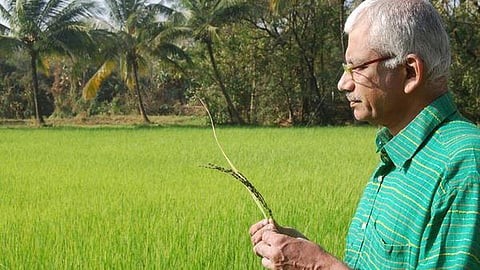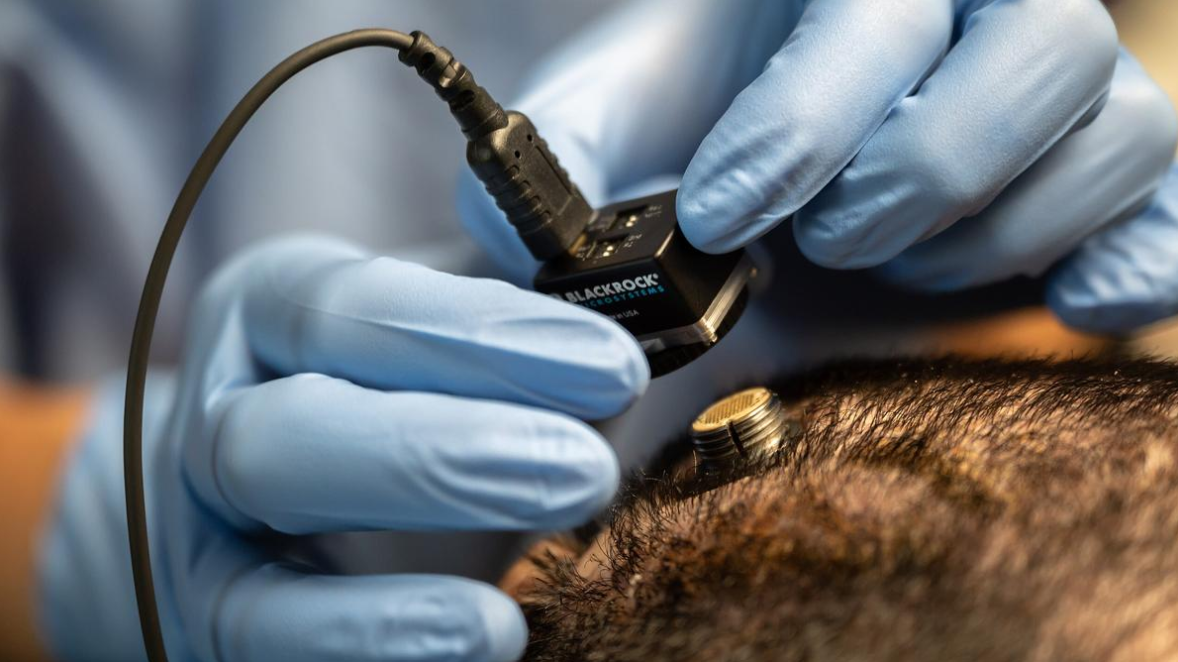





Source: HINDU
Disclaimer: Copyright infringement not intended.
Context
Details
Genetically Modified Crops In India
Must read articles:

|
Aspect |
Details |
|
Introduction |
Introduced in India in 2002, Bt cotton was developed to combat the bollworm pest. It incorporates a gene from the bacterium Bacillus thuringiensis (Bt) which produces a toxin lethal to certain insects. |
|
Impact |
Since its introduction, Bt cotton has significantly reduced the need for insecticides and increased cotton yields. India became the largest producer of cotton globally within a decade. However, issues such as resistance in pests and the high cost of seeds have posed challenges. |
|
Challenges |
The pink bollworm has developed resistance to the first generation of Bt cotton, leading to reduced efficacy. The cost of Bt seeds is higher, affecting profit margins for farmers despite savings on insecticides. |
|
Economic and Environmental Benefits |
Reduced use of insecticides has benefitted the environment and farmer health. Economically, Bt cotton has been credited with doubling yields and making India a major cotton exporter. However, there are mixed reports on whether profits for farmers have increased. |
|
Current Status |
Bt cotton remains widely cultivated in India, with ongoing research to address resistance issues and develop new varieties. |
|
Aspect |
Details |
|
Introduction |
Bt brinjal is genetically modified to resist the fruit and shoot borer, a common pest. Developed in India, it incorporates a gene from Bacillus thuringiensis. |
|
Regulatory Approval |
In 2009, the Genetic Engineering Approval Committee (GEAC) recommended its approval. However, a moratorium was placed on its release in 2010 due to public and scientific concerns. |
|
Controversies |
Environmental and health safety concerns led to protests and demands for more comprehensive testing. The moratorium on Bt brinjal remains, and it is not commercially cultivated in India. |
|
Research and Trials |
Limited field trials have been conducted under strict regulations, but commercial cultivation is not permitted. |
|
Current Status |
Bt brinjal cultivation is banned in India, though it has been approved in Bangladesh where it is grown commercially. |
|
Aspect |
Details |
|
Introduction |
DMH-11 is a genetically modified mustard developed to increase yields and make the crop herbicide-tolerant. It was created by the University of Delhi's Centre for Genetic Manipulation of Crop Plants (CGMCP). |
|
Regulatory Approval |
The GEAC approved it in 2017, but it has not yet received final clearance from the government for commercial cultivation. |
|
Controversies |
There are concerns about its potential impact on biodiversity, honey production, and the livelihoods of farmers. Environmental activists and some farmer groups oppose its introduction. |
|
Research and Trials |
Extensive trials have been conducted to assess yield, safety, and environmental impact. |
|
Current Status |
DMH-11 has not yet been commercially released pending further government approval and resolution of ongoing debates. |
|
Aspect |
Details |
|
Introduction |
Golden Rice is genetically modified to produce beta-carotene, a precursor of vitamin A. It aims to address vitamin A deficiency (VAD) which causes blindness and other health issues. |
|
Development |
Developed by the International Rice Research Institute (IRRI) and other partners, it has undergone several iterations to increase beta-carotene content. |
|
Health Benefits |
Golden Rice is designed to provide a dietary source of vitamin A, particularly for populations where rice is a staple food and VAD is prevalent. |
|
Regulatory Status |
As of now, Golden Rice has not been approved for commercial cultivation in India. Regulatory and bio-safety assessments are ongoing. |
|
Challenges |
There are concerns about its acceptance by farmers and consumers, its impact on traditional rice varieties, and long-term health and environmental effects. |
|
Current Status |
Research and trials continue, with a focus on bio-safety and nutritional benefits. Approval processes are still underway. |
Timeline On The Development And Regulation Of Genetically Modified (GM) Crops In India
|
Year |
Event |
|
2002 |
Introduction of Bt cotton in India, the first and only GM crop approved for commercial cultivation. |
|
2006 |
Activists file a Public Interest Litigation (PIL) against GM crops in the Supreme Court. |
|
2007 |
Genetic Engineering Appraisal Committee (GEAC) recommends the commercial release of Bt brinjal, developed by Mahyco. |
|
2010 |
Environment Minister Jairam Ramesh imposes an indefinite moratorium on Bt brinjal due to lack of consensus and opposition from various states and stakeholders. No objection certificates from states become mandatory for field trials of GM crops. |
|
2012 |
Parliamentary Standing Committee on Agriculture recommends ending all GM field trials. |
|
2013 |
Supreme Court-appointed expert panel suggests a 10-year moratorium on GM crop trials until regulatory systems are strengthened. Environment Minister Jayanthi Natarajan halts all trials. |
|
2014 |
Environment Minister Veerappa Moily resumes field trials. GEAC approves field trials for 21 new GM crops including maize, rice, sorghum, and wheat. |
|
2016 |
GEAC approves field trials for GM mustard (Dhara Mustard Hybrid-11), developed by Delhi University, but the Supreme Court stays the order and seeks public opinion. |
|
2017 |
Reports of illegal Bt brinjal cultivation surface in Andhra Pradesh, Haryana, Maharashtra, and Punjab. |
|
2020 |
Environment Ministry approves GM mustard for environmental release; however, commercialization is pending due to ongoing legal and public debates. |
|
2022 |
Continued debates and research on GM crops like GM mustard and Bt brinjal, with ongoing trials and regulatory reviews. |
Genetic Engineering Appraisal Committee (GEAC)
|
Aspect |
Details |
|
Formation |
|
|
Function |
|
|
Composition |
|
|
Approval Process |
|
|
Significant Approvals |
|
|
Roles and Responsibilities |
|
Sources:
|
PRACTICE QUESTION Q: Examine the role of genetically modified (GM) crops in enhancing agricultural productivity and addressing food security in India. Discuss the key challenges and regulatory issues associated with the adoption of GM crops in the country. (250 Words) |






© 2025 iasgyan. All right reserved